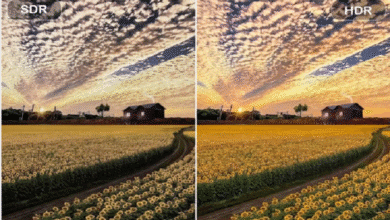iCloud vs Google Photos: The Ultimate Comparison for Cloud Photo Storage

1. Why Compare iCloud vs Google Photos?
When it comes to cloud photo storage, iCloud vs Google Photos are two of the most popular platforms available today. With the growing demand for secure and reliable cloud storage for our ever-expanding photo collections, choosing the right service is crucial. Both iCloud and Google Photos offer similar functionality but differ in features, pricing, and integration with devices. In this comprehensive guide, we will dive into the details of iCloud vs Google Photos to help you determine which one is best suited for your needs.
2. Storage Plans and Pricing
One of the first aspects to consider when comparing iCloud vs Google Photos is their storage plans and pricing. iCloud starts with 5GB of free storage, which is relatively small given today’s media-heavy needs. Additional storage can be purchased, with plans starting at $0.99/month for 50GB and going up to $9.99/month for 2TB.
On the other hand, Google Photos previously offered unlimited free storage at a reduced quality but has since transitioned to a paid model for high-quality photos. Google Photos now offers 15GB of free storage shared across Google Drive, Gmail, and Google Photos. Additional storage starts at $1.99/month for 100GB and can go up to $9.99/month for 2TB. For those comparing iCloud vs Google Photos, pricing plays an important role, especially for heavy users.
3. Cross-Platform Compatibility
When it comes to compatibility, iCloud vs Google Photos differ significantly. iCloud is built to work seamlessly within the Apple ecosystem, making it the ideal choice for those who exclusively use Apple devices like iPhones, iPads, and Macs. If you’re already invested in Apple products, iCloud offers a tightly integrated experience, syncing photos across all devices using your Apple ID.
On the other hand, Google Photos is compatible across multiple platforms, including iOS, Android, and Windows, making it a more versatile option. If you’re someone who uses a combination of devices from different platforms, the cross-platform support of Google Photos gives it an edge in the iCloud vs Google Photos debate.
4. User Interface and Experience
When comparing the user interface in iCloud vs Google Photos, both platforms offer intuitive designs, but they cater to different user bases. iCloud Photos has a clean, minimalistic interface that aligns with Apple’s design philosophy. For Apple users, the familiarity and simplicity of iCloud make it easy to organize and manage photo collections directly from their devices.
Meanwhile, Google Photos offers a more feature-rich interface. The app provides automatic categorization of photos using AI, creating albums, and offering search suggestions based on people, places, and objects. The AI-powered organization in Google Photos often makes it easier to find specific images, giving it an edge in the iCloud vs Google Photos comparison when it comes to navigation and smart features.
5. Photo and Video Management
Effective photo and video management is essential when comparing iCloud vs Google Photos. iCloud Photos offers seamless integration with Apple’s native photo app, making it easy to organize albums and share content with other Apple users. iCloud supports original-resolution photos and videos, ensuring high-quality backups of your media.
Google Photos, on the other hand, excels in terms of photo management thanks to its powerful AI tools. With Google Photos, you can automatically create albums, collages, animations, and even movies from your media files. It also has advanced search capabilities that allow you to find photos based on keywords, locations, and faces without needing to tag them manually. The superior AI-driven organization gives Google Photos a significant advantage in this area when compared to iCloud vs Google Photos.
6. Privacy and Security
In the modern age, privacy and security are top concerns for users choosing between iCloud vs Google Photos. iCloud offers end-to-end encryption for photos stored on its platform, which is a critical feature for users who prioritize security. Apple is known for its strong stance on user privacy, and your data in iCloud is generally kept secure with advanced encryption methods.
Google Photos, while also offering secure storage, has faced some criticism over its use of user data for advertising purposes. Although your photos are secure and encrypted, Google’s business model includes data collection to improve targeted advertising, which can be a privacy concern for some users. Therefore, for privacy-conscious users, iCloud may have the edge in the iCloud vs Google Photos comparison.
7. Editing and Sharing Features
Both iCloud and Google Photos provide editing and sharing capabilities, but there are some differences worth noting. iCloud offers basic photo editing tools, such as cropping, filters, and brightness adjustments, which are sufficient for users who require simple edits. Sharing through iCloud is also seamless within the Apple ecosystem, allowing users to quickly share photos with others using AirDrop or iMessage.
Google Photos, however, takes photo editing a step further by offering more advanced features. It includes a range of filters, automatic adjustments, and even AI-powered suggestions to enhance photos. Additionally, Google Photos makes it easy to create shared albums and collaborate with others, making it a great option for group events or family albums. The more robust editing and sharing features make Google Photos a strong contender in this aspect of the iCloud vs Google Photos debate.
8. Backup and Syncing
Reliable backup and syncing capabilities are crucial factors when comparing iCloud vs Google Photos. iCloud offers seamless syncing across all Apple devices, ensuring that your photos are automatically backed up and accessible from any iPhone, iPad, or Mac. This tight integration within the Apple ecosystem is one of iCloud‘s greatest strengths.
Meanwhile, Google Photos excels at cross-platform syncing. Whether you’re using an Android phone, iPhone, or PC, Google Photos will back up your media and sync it across all devices. The ability to access your photos from almost any device makes Google Photos an excellent choice for users who aren’t tied to one ecosystem. In terms of versatility, Google Photos takes the lead in the iCloud vs Google Photos comparison.
9. Photo Search and AI Features
When it comes to advanced search capabilities, Google Photos outshines iCloud. Google Photos leverages Google’s powerful AI technology to categorize and tag photos automatically, making it easier to search for specific images based on facial recognition, objects, and locations. This AI-driven organization significantly improves the photo-searching experience, especially for users with large collections of images.
iCloud, while offering reliable photo storage, lacks the sophisticated AI features found in Google Photos. Although you can manually organize photos into albums and tag them, iCloud does not offer the same level of automatic organization or search capability as Google Photos. For users who prioritize smart organization and search, Google Photos is the clear winner in the iCloud vs Google Photos debate.
10. Which is Best: iCloud vs Google Photos?
When determining the best cloud storage solution between iCloud and Google Photos, the answer depends on your specific needs. iCloud is the perfect choice for Apple users who want seamless integration with their devices and value privacy and security. On the other hand, Google Photos excels in cross-platform compatibility, AI-powered photo organization, and advanced search capabilities. If you use a variety of devices or prioritize smart features, Google Photos may be the better option. Both platforms offer distinct advantages, so it’s essential to consider your device ecosystem, storage needs, and preferred features when choosing between iCloud vs Google Photos.
Conclusion
Choosing between iCloud and Google Photos ultimately comes down to your personal preferences and how deeply integrated you are into either the Apple or Google ecosystem. iCloud is ideal for users who value privacy and have multiple Apple devices, while Google Photos offers broader compatibility and superior AI features for organizing and searching your media. Both services are excellent options, but your decision should be based on which platform best meets your cloud storage needs, budget, and device usage. Whether you choose iCloud vs Google Photos, you’ll have a reliable and efficient way to manage and store your cherished photos.
Read More: Everything You Need To Know About Baddiehub and Baddieshub
FAQ
1. Is iCloud more secure than Google Photos?
Both iCloud and Google Photos offer strong security, but iCloud provides end-to-end encryption, making it a better option for privacy-conscious users. Google Photos offers encryption as well, but Google uses data for advertising purposes, which may raise privacy concerns.
2. Does Google Photos work on Apple devices?
Yes, Google Photos is compatible with iOS devices like iPhones and iPads. It offers cross-platform support, allowing users to access their photos across both Android and Apple devices.
3. Which offers more free storage: iCloud or Google Photos?
Google Photos offers 15GB of free storage shared across Google services, while iCloud provides 5GB of free storage. For users needing more free space, Google Photos offers more value in the iCloud vs Google Photos comparison.
4. Can I use both iCloud and Google Photos?
Yes, you can use both iCloud and Google Photos simultaneously. Many users opt to store photos in both services to take advantage of the strengths of each platform.
5. Which is better for organizing large photo libraries?
Google Photos is better suited for organizing large photo libraries due to its AI-powered search, automatic categorization, and smart album creation. iCloud, while reliable, lacks the advanced organization features found in Google Photos.
Read More: Will get everything from HDMovieHub4U




